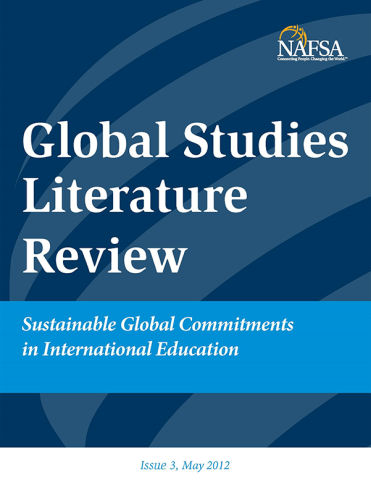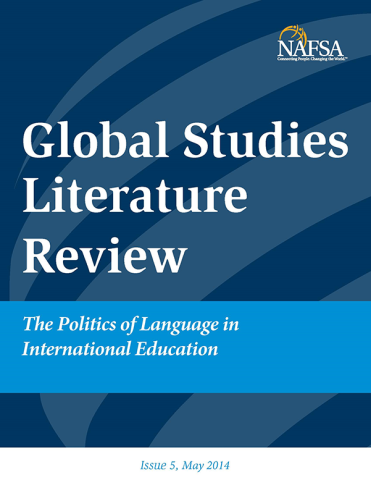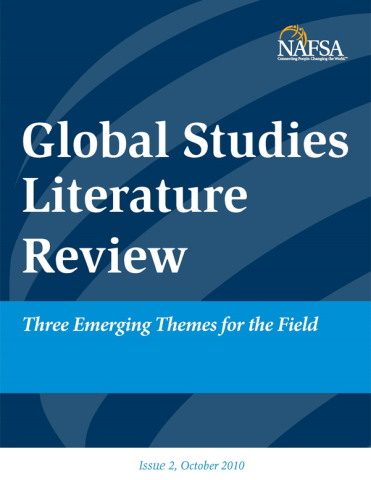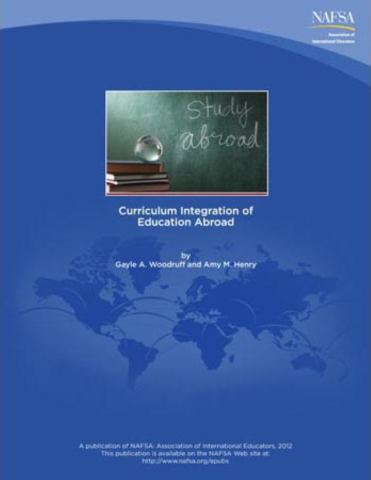Global Studies Literature Review, Volume 3
The third issue of the Global Studies Literature Review sought a more in-depth exploration of a topic. The theme for this issue, “Sustainable Global Commitments in International Education,” resulted in several submissions that together provide salient and insightful views on the professional efforts of international educators.
The original call for reviews asked readers to consider responding to three interwoven threads of sustainability:
- The responsibility and contributions of higher education and international education to major world stability, including global public health, environmental issues, and global political economy.
- Our own sustainability as a field and as a profession, including the partnerships and commitments we make on the home campus and abroad, especially in a discourse that is increasingly market driven.
- The sustainability of cultural difference and indigenous knowledge as global higher education expands to include underserved, marginal, or historically overlooked groups and regions—i.e. what are the tensions between accessibility, global homogeneity, and local innovations as the spaces of higher education reach a wider segment of the world’s population?
Information about other editions is available on NAFSA's Research and Trends page.

Global Studies Literature Review, Volume 3
The third issue of the Global Studies Literature Review sought a more in-depth exploration of a topic. The theme for this issue, “Sustainable Global Commitments in International Education,” resulted in several submissions that together provide salient and insightful views on the professional efforts of international educators.
The original call for reviews asked readers to consider responding to three interwoven threads of sustainability:
- The responsibility and contributions of higher education and international education to major world stability, including global public health, environmental issues, and global political economy.
- Our own sustainability as a field and as a profession, including the partnerships and commitments we make on the home campus and abroad, especially in a discourse that is increasingly market driven.
- The sustainability of cultural difference and indigenous knowledge as global higher education expands to include underserved, marginal, or historically overlooked groups and regions—i.e. what are the tensions between accessibility, global homogeneity, and local innovations as the spaces of higher education reach a wider segment of the world’s population?
Information about other editions is available on NAFSA's Research and Trends page.




